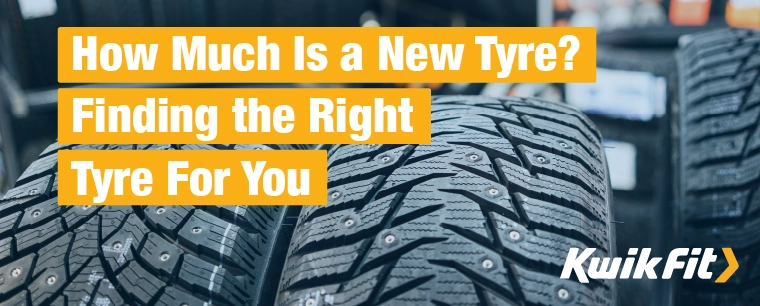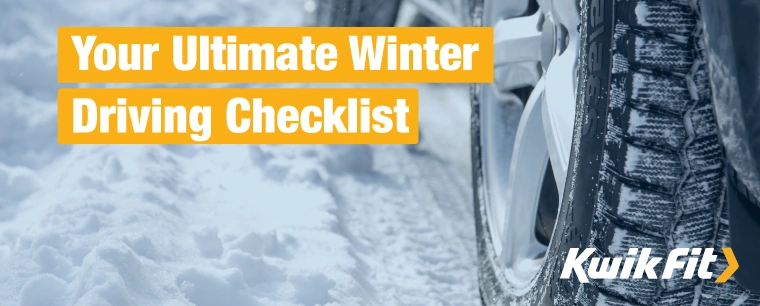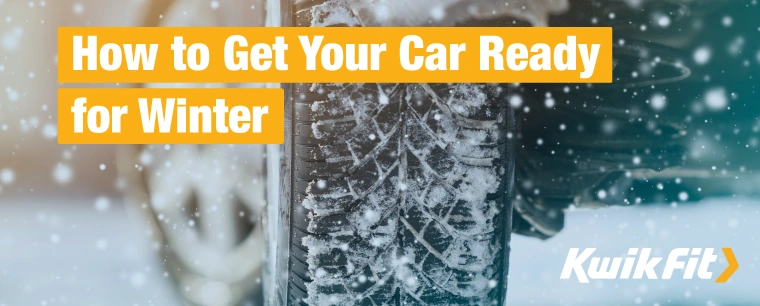How Much Is a New Tyre? Finding the Right Tyre For You
Jack Dreyer | Wednesday 8th November 2023 4:00pm

If the tyres on your car need changing, you may be wondering how much the new set will set you back. The answer to this, however, depends on a huge number of factors. Things such as how many tyres you’ll need, the size and type of your vehicle, how you drive, how you intend to use the vehicle, all go into making a decision to buy a particular set of tyres over another set. Even the cost of the most budget tyres varies from vehicle to vehicle depending on the size of the wheels.
For example, the lowest cost new tyre for a Vauxhall Corsa is likely to be somewhere in the region of £50, with the more premium options being around £115 from Michelin and Goodyear. For a whole set, the difference here could mean the difference between spending £200 or spending £460.
So why the difference?
The difference between Budget & Premium tyres

If you simply can’t afford to go for anything other than the lowest cost tyres, then at least you have an easy choice! But it’s worth being aware that, quite often, it’s a false economy.
The lowest cost tyres are often so cheap at the expense of some of the more serious research and development into tread patterns, rubber compounds, and other innovations that go towards making great, durable tyres. One of the easiest comparisons to make is with the tyre’s Rolling Resistance. This is categorised between A-E.
Tyres can account for between 20-30% of the overall fuel consumption of a vehicle and the differences between each category in the tyre’s ‘Fuel Efficiency’ rating mean that the tyre uses 0.1L less per 100km driven. Spread across all four tyres and comparing category D to category A, you’re looking to be using significantly less fuel with category A tyres.
A fuel saving of 5-10% serves to easily save you somewhere in the region of £100-200 in fuel over the course of a year — depending how often and how you drive.
So, as you can see, the initial £160 saved on the cheaper tyres is made up in the long run in fuel savings.
On top of this, premium tyres will usually be harder wearing, more durable, and create less road noise. With an average lifespan of 20,000 miles, opting for premium tyres saves even more money in the long run.
Should you choose seasonal options?

Another key factor that impacts the cost of a new tyre is whether or not you opt for seasonal or all-weather tyres. While you can get budget versions in the individual categories of Summer Tyres, Winter Tyres, or All Weather Tyres, it’s worth noting that a premium tyre will always perform better in each category.
The differences between these lie in the tread patterns and depths. In short, winter tyres tend to have deep tread grooves to better grip the road in wet or snowy conditions. As a result, you might find they’re generally a little more expensive than standard tyres.
If you do choose seasonal options, make sure you’re also aware of the need to store your summer tyres in winter and vice versa.
Do you need heavy duty tyres?

Another factor that’ll affect your buying decision and the ultimate cost is whether you need XL or heavy duty 4x4 tyres for offloading or bearing more weight.
The tyres for vehicles like pickup trucks, work vans, and motorhomes usually have to withstand much heavier loads than normal passenger cars — often as much as 3.5 tonnes! As such, they’re often run flat but also constructed with reinforced cores to be able to withstand the extra loads.
Due to their more demanding construction, they’re often considerably more expensive than normal tyres – but they’re also essential for safely carrying loads on your vehicle.
Which one should you choose?
We’d always recommend that you go with the highest quality tyre that you can afford – because, short of an untimely puncture, the tyre will almost always pay for itself in longer term savings.
How much is a new tyre for your vehicle?
As you can see, there are a lot of factors at play that impact the cost of a new tyre, including:
- Whether you choose budget or premium
- Whether you opt for seasonal or standard
- Whether you need heavy duty or 4x4 tyres
- Whether you want run flat tyres
To see what options are available for your vehicle, put its registration number into our tyre search tool here. You can even book a tyre replacement at your local Kwik Fit at the same time!
Any facts, figures and prices shown in our blog articles are correct at time of publication.
Featured Articles
Is Your Car Battery Ready for Winter?
Monday 11th November 2024
Is the UK on the verge of ‘the coldest winter for 50 years?’ Even if El Niño doesn't hit the UK this winter, reduce the risk of a winter breakdown by making sure your car battery is winter-ready.
Your Ultimate Winter Driving Checklist
Monday 31st October 2022
Driving in the colder months presents many challenges. Breakdowns are far more common in winter, so make sure you’re prepared with these essentials.
How to Get Your Car Ready for Winter
Wednesday 28th September 2022
Winter can be a harsh season for your car but planning ahead by carrying out some basic maintenance and packing some essential kit should help you avoid a winter breakdown.







